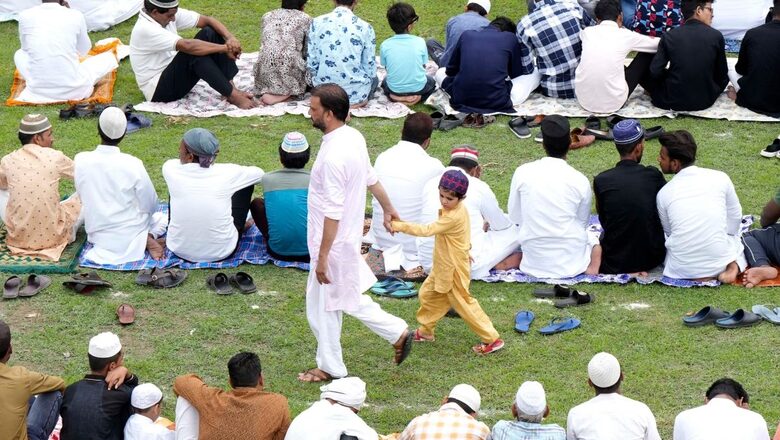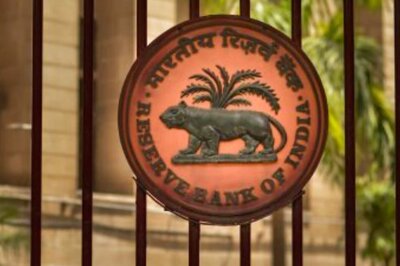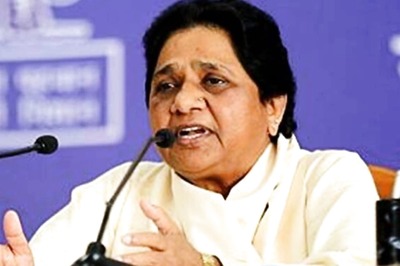
views
There has been a rise in the number of visible progressive Muslims in India due to the expansion of social media and the realisation dawning in Indian media that the stereotype of a radicalised Muslim is cliché and that a considerable number of Indian Muslims are defying those stereotypes. It is important to understand who or what progressive Muslims are, because the inference is, that if there are progressive ones, there must be regressive ones too. Quite right, Kashmir did have its regressive aspirations for an Islamic Republic on the lines of Pakistan and it has taken more than thirty years and two generations buried for the population to realise how regressive this thought, or two-nation theory was/is.
So, progressive Muslims are individuals within the Islamic faith who advocate for a contemporary and inclusive interpretation of Islam. They prioritise values such as gender equality, social justice, and human rights, and seek to reconcile traditional teachings with modern realities. Progressive Muslims challenge patriarchal norms, promote interfaith dialogue, and counter extremist ideologies through critical thinking and open discourse. They play a crucial role in fostering a more compassionate and relevant understanding of Islam in today’s diverse and evolving world.
What does it mean to be a progressive Muslim, especially given the polarising discourse in the country today and the mutual distrust between Hindus and Muslims? Well, being a progressive Muslim involves embracing an open and forward-thinking approach to Islam. Progressive Muslims have started their own analysis of their scriptures and adopting those teachings that either align with their moral compass or rejecting those that go against humanistic and pluralistic values, in short, enlightenment values. As more and more critical thinking spaces find safety in the Islamic world, whether offline or online, progressive Muslims dare to go into previously taboo topics in Islamic history and jurisprudence and question anything that is hypocritical or doesn’t make sense. The Islamic jurisprudence and history had been the domain of preachers and ulema for centuries, ossified by the ulema-state alliance (a kind of you-scratch-my-back-I-scratch-your policy) since the Abbasid times to the previous century. The Internet broke that stranglehold of the ulema on the ordinary citizens and now with verses, and their translations at the fingertips of everyone, especially women of Muslim heritage, the ulema find it harder to control the Muslim masses and keep them in ignorance and in patriarchal interpretations.
Considering India still has a considerable umbrella of Islamic thought under the Deobandis, Barelvis, the law being manipulated by the AIMPLB (All India Muslim Personal Board) and the intelligentsia under the AMU, Jamia University, etc., the progressive Muslim movement holds significant importance within the broader context of Islam. Progressive Indian Muslims willing to get in the arena offer a modern and inclusive perspective that resonates with contemporary society, promoting a more balanced and relevant understanding of the faith. By countering extremism, fostering interfaith dialogue, and addressing societal challenges, progressive Muslims of the subcontinent contribute to a dynamic and evolving Islamic narrative that reflects the diversity and needs of today’s global community.
The struggle to have the instant triple talaq banned by Indian women and men from Islamic heritage was the success of progressive Muslims. Now with their focus shifting towards the implementation of the UCC, progressive Indian Muslims are reinterpreting traditional Islamic teachings by contextualising them within modern realities. Emphasising the underlying principles of justice, compassion, and equality found in the Quran and Hadith, and by adapting these teachings to address contemporary issues, the progressive Muslims insist on female qazis solving matrimonial disputes and female imams to lead the prayers in mixed congregation mosques.
This insistence is revolutionary, but it isn’t a novel idea because it has been replicated from the Muslim Reform Movement in Washington in 2015 and the Ibn Rushd-Goethe Mosque in Berlin, where female imam Seyran Ates leads mixed congregation prayers and welcomes the LGBT community for prayers. The first mixed congregation mosque being built in Jharkhand is also a huge achievement for the progressive Indian Muslims, which was only possible through critical analysis and open discourse with community elders and influencers. Progressive Muslims believe in bridging the gap between tradition and modernity while advocating for a more inclusive and relevant expression of their faith.
Of course, it is not easy to lasso 174 million Indian Muslims of diverse backgrounds, creeds, sects and a variety of beliefs and opinions into the 21st century. Conservative segments within the Muslim community often attack the progressive Muslims and reformers, accusing them of deviating from established interpretations, which can even go into the area of blasphemy. This is a desperate attempt at takfiri terrorism, pronouncing a Muslim heritage person who they don’t agree with as an apostate or not Muslim enough, justifying his or her murder (wajib ul qatl). Conservative ulema, especially the ones who are holding onto their hold on the Muslim masses desperately, might argue that reinterpretation risks diluting religious authenticity or going against historical norms, or they worry that progressive views could weaken the cultural and moral fabric of their communities. These concerns reflect the defeat facing the conservatives in the cultural war against modernity, which has already been won. Hence the struggle to preserve established practices, with no rules and no fair play.
Progressive Muslims respond to criticisms by emphasising the importance of recontextualising religious teachings to align with core values of justice, equality, and compassion. The various progressive periods in Islamic Civilisation which developed after 632 CE, demonstrate the capabilities of Muslims to become as advanced and civilised as any other culture, with the Age of Translation (generally referred to as The Golden Age of Islam), the Arabic Nahda or Renaissance, the Tanzimat Reforms in the Ottoman Caliphate, the Arab Spring and the current Iranian and Afghan Resistance to mullahcracy and the dreaded Taliban.
Several prominent progressive Muslim scholars and activists have played pivotal roles in championing women’s rights within the context of Islam. Dr Amina Wadud, a scholar and author, is known for her advocacy of gender equality and reinterpretation of Islamic texts. She gained international attention by leading mixed-gender congregational prayers and challenging traditional gender roles within Islamic worship. There is Dr Asma Barlas, an academic and feminist scholar, who has written extensively on the Quran and women’s rights. Her work focuses on promoting an egalitarian understanding of Islamic texts and challenging patriarchal interpretations. Ugandan-Canadian author and activist Irshad Manji founded ‘Project Ijtihad,’ which encourages independent and critical thinking within the Islamic tradition. She advocates for LGBTQ+ rights, gender equality, and progressive interpretations of the faith. Also, Zainah Anwar of Malaysia co-founded the organisation ‘Sisters in Islam’, which advocates for justice and equality for Muslim women in Malaysia. The organisation challenges discriminatory practices and campaigns for legal reforms.
India’s progressive Muslims too are making a difference in their circle of influence, making bridges across communities, conducting inter-faith dialogues, and revising Indian history so that gender equality can be promoted in Muslim masses and patriarchal norms can be challenged. Through their scholarship, activism, and advocacy, they are contributing to countering extremist ideologies through critical thinking and open dialogue, emphasising Islam’s essence of peace and compassion. Challenging simplistic interpretations resonate with seekers of knowledge, encouraging rational understanding. Open dialogue channels frustrations away from radicalisation, fostering a resilient community.
The progressive Muslim movement is adapting globally, focusing on inclusivity, gender equity, and interfaith dialogue, while addressing conservative norms and extremism in India’s Muslim-majority regions. Despite regional variations, progressive Muslims share a commitment to modern values within Islam’s framework, contributing to a diverse yet united movement. In New India’s plan, they definitely figure significantly.
The author is a writer and an educationist from Srinagar, Kashmir. Views expressed in the above piece are personal and solely that of the author. They do not necessarily reflect News18’s views.



















Comments
0 comment